Equisetum hyemale (tall scouringrush) Go Botany
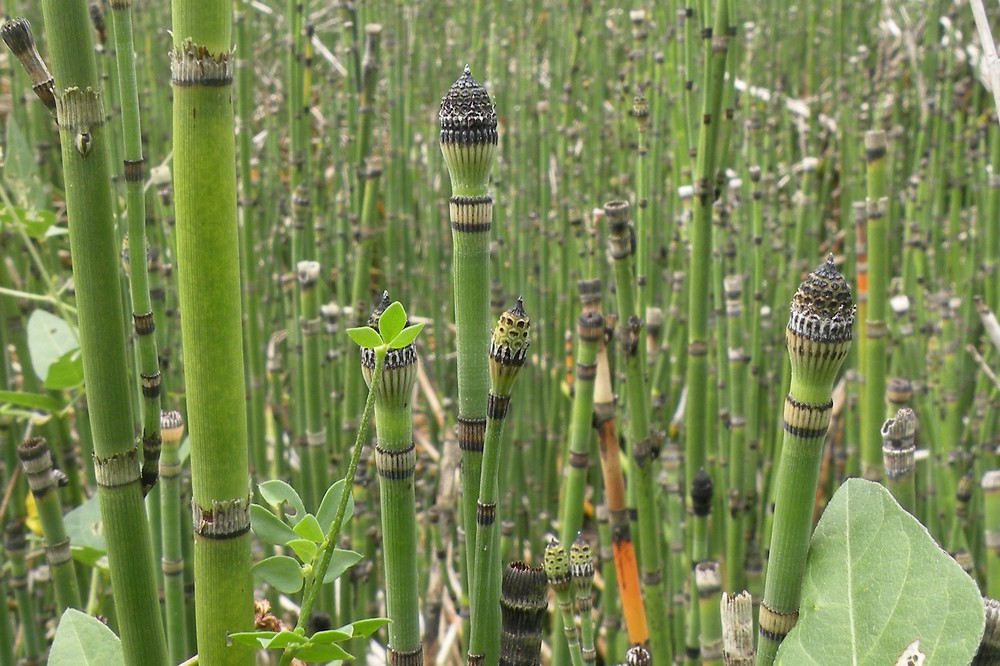
Equisetum hyemale (tall scouringrush) Go Botany
The hollow, segmented stems are very high in silica. The common name "Scouring Rush" comes from its use as a polish for shining metals. Horsetail adds a truly unique form and texture to the garden and is an attractive, carefree solution for areas with soggy soil.UsesEspecially nice in waterside gardens. Perfect for use in swampy areas and areas.
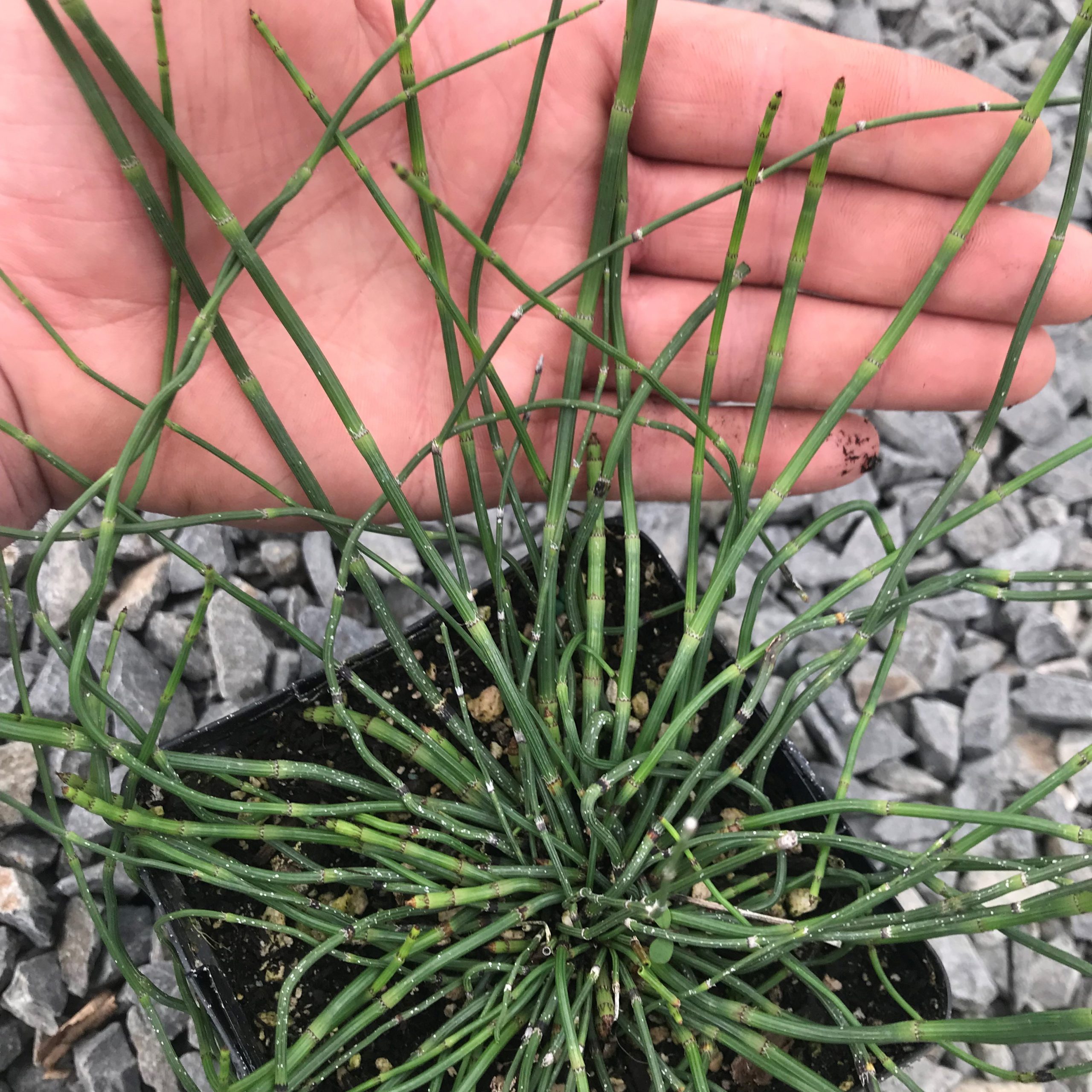
Equisetum hyemale Rough Horsetail (4.5" Pot) Little Prince To Go
Equisetum hyemale var. affine. Can save as 500x500px image. Scouring-rush, Horsetail Equisetaceae Plant Specifics. Form: Grass: Size: 2-4 ft tall by 0.1 ft wide: Life Span: Long-lived perennial: Flower Color: Phenology: Evergreen: Noted for: Interesting foliage: Landscaping. Recommended Uses: Water gardens, edges of retention ponds:

Horsetail (Equisetum hyemale) in Louisville Indiana Kentucky KY at
Equisetum hyemale is commonly called rough horsetail or scouring rush. However, Equisetum is not a rush, fern, or reed. This horsetail is a non-flowering, rush-like perennial that is native to Europe, North America, and Asia. It is very easy to grow and is considered invasive in most places. You May Also Enjoy:
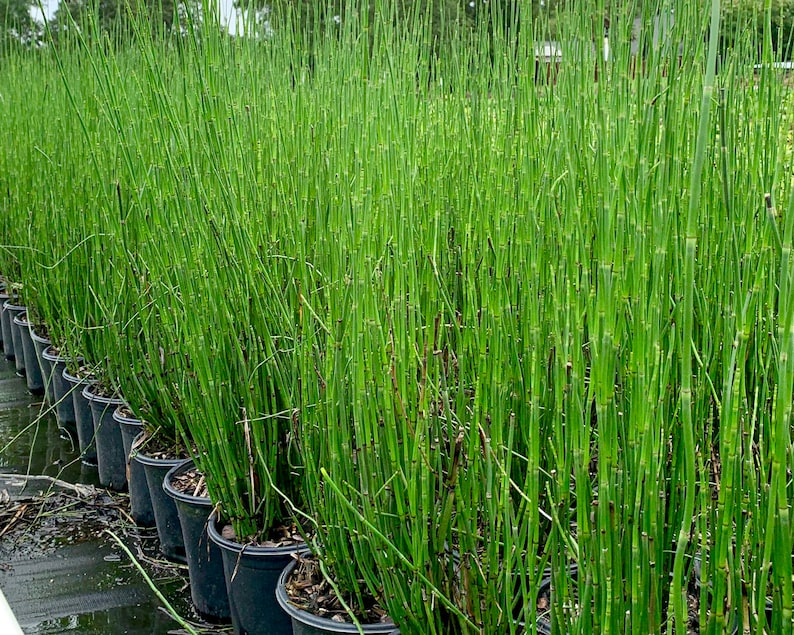
Horsetail Reed Equisetum Hyemale Horsetail Reed Grass Etsy
Equisetum hyemale is found more often in disturbed sites than in high quality natural areas. Hardy from USDA Zones 4-9. PLANT DESCRIPTION: Equisetum hyemale is a vigorous perennial with aggressive burrowing rhizomes. Dense clumps of rigid upright stems arise from the rhizomes. The attractive stems are cylindrical, hollow and less than ½" across.
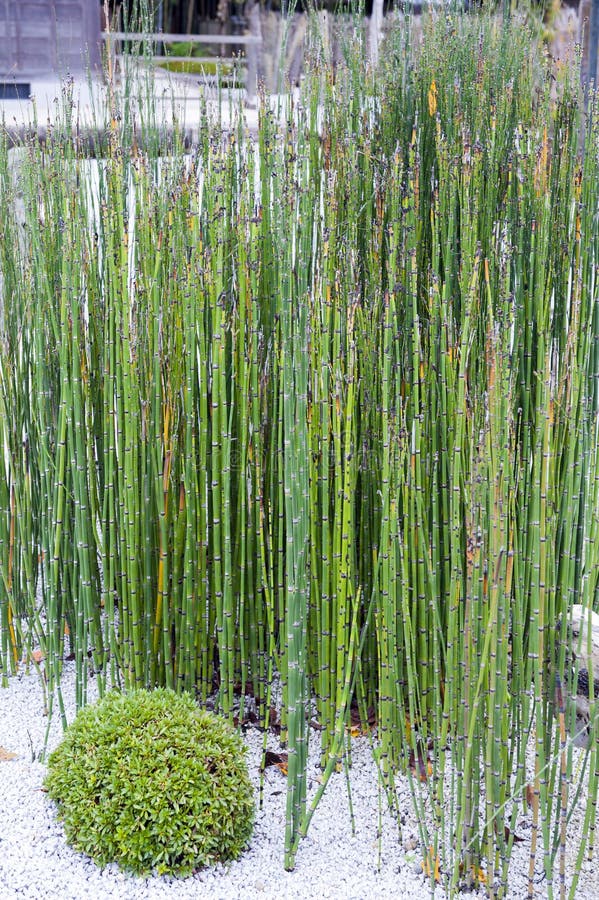
Equisetum Hyemale Known As Horsetail Reed, Rough Horsetail, Scouring
Equisetum hyemale is commonly known as scouring rush or rough horsetail. It is an evergreen perennial with green stems and horizontal bands. Scouring rush horsetail grows 2 to 6 feet tall, reaching its peak height in just a few weeks. They are used as ornamental plants; they do not produce any flowers. The name comes from the stems that.
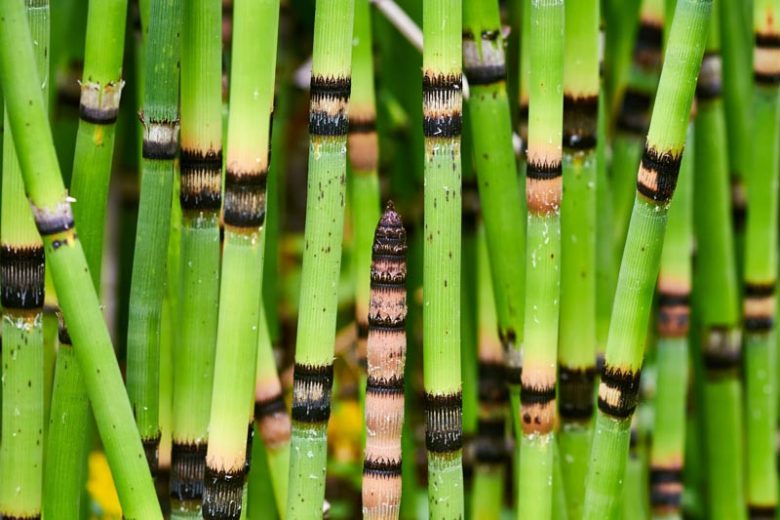
Equisetum hyemale (Horsetail)
Horsetail (Equisetum Hyemale) Guide and Care Instructions Equisetum Hyemale Information: Common Names: Horsetail, Rough Horsetail, Scouring Rush, Snake Grass Plant Type: Evergreen, Rhizome, Perennial, Indoor/Outdoor Mature size: 2-5 ft tall / spreads 6-12 inches per year Soil/Plant PH: 6.5-7.5 (alkaline water is ideal) Hardiness Zone: 4-9

Equisetum hyemale Rough Horsetail (4.5" Pot) Little Prince To Go
Equisetum hyemale (Rough Horsetail or Scouring Rush) is a widespread species ative to moist forests, forest edges and stream banks, swamps, fens throughout most of California. It is primarily found in wetlands, and in riparian zones of rivers and streams where it can withstand seasonal flooding.
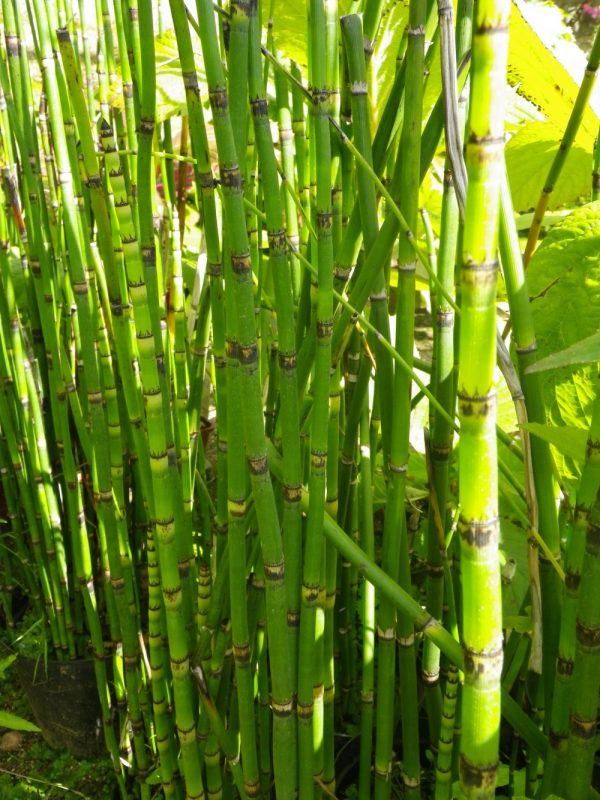
Equisetum hyemale (Rough Horsetail) Devon Pond Plants
Horsetail ( Equisetum hyemale ). Photo by Vic Ramey ©2001, University of Florida. Horsetail is an ancient plant that dates back millions of years. Today, it's often a unique architectural focal plant for modern gardens. This perennial plant is easily recognized by its hollow, thin, bamboo-like stems.

Equisetum hyemale Horsetail in 3 pots odd numbers add interest
PERENNIAL PLANTS. Horsetail Reed Grass - Equisetum hyemale - 1 Gallon Pot. Horsetail Reed Grass is a native perennial plant of Eurasia, Canada and the U.S., where in the wild you might find it growing in the peripheries of wetland areas, lakes, rivers and ponds. Perfect for filling those moist to wet spots, its rigid, hollow and jointed upright.

Equisetum hyemale Water Garden Plants
Equisetum hyemale (commonly known as rough horsetail, [1] scouring rush, scouringrush horsetail and, in South Africa, as snake grass) is a perennial herbaceous fern in the horsetail family Equisetaceae. It is a native plant throughout the Holarctic Kingdom, found in North America, Europe, and northern Asia . Distribution
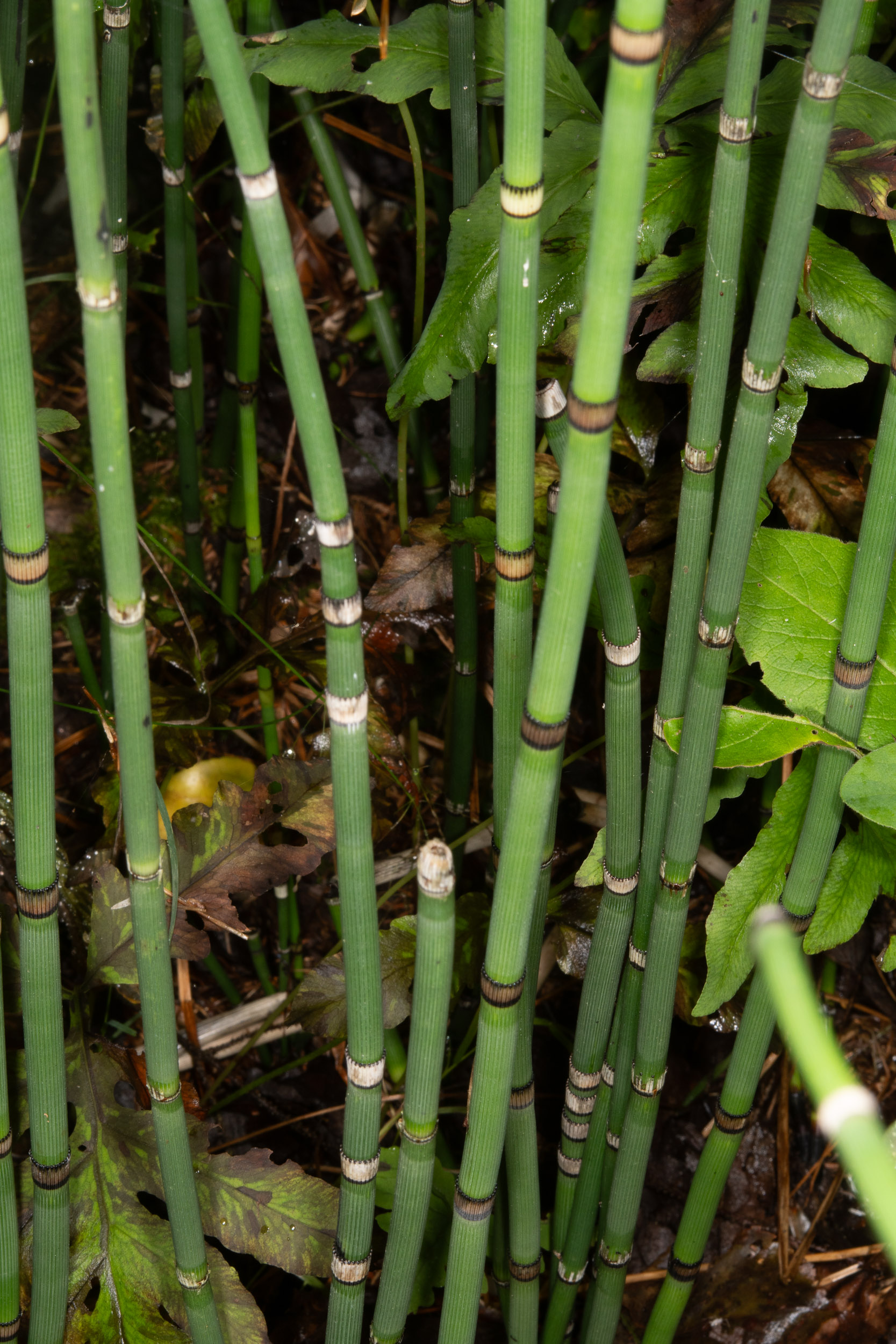
Equisetum hyemale (Rough horsetail)
Equisetum hyemale (commonly known as rough horsetail, [1] scouring rush, scouringrush horsetail and, in South Africa, as snake grass) is a perennial herbaceous fern in the horsetail family Equisetaceae. It is a native plant throughout the Holarctic Kingdom, found in North America, Europe, and northern Asia .

Onward Equisetum hyemale grow where you're planted ModFruGal Plants
Equisetum hyemale|rough horsetail/RHS Gardening Aquatic Bogs Equisetum hyemale rough horsetail A tall, upright, evergreen perennial to about 180cm, with hollow, jointed stems banded in black Other common names Dutch rush Dutch rushes see more pewterwort Synonyms Equisetum japonica Join the RHS today and save 25% Join now < > © RHS
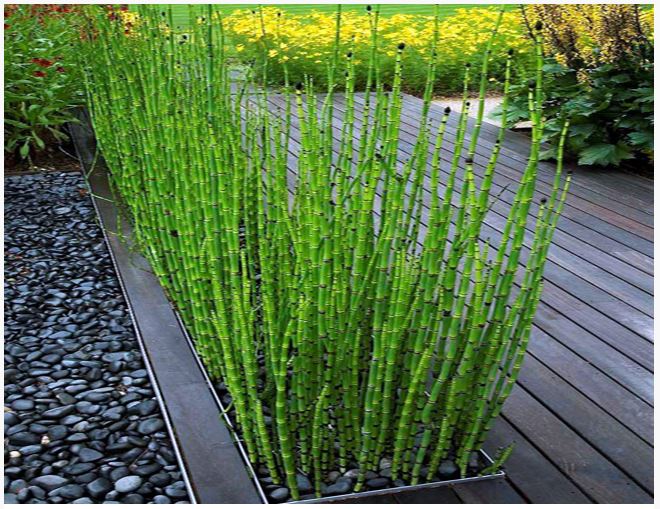
Winter Hardy Pond Marginal Bog Plant Rush (Horsetail) or Equisetum
Equisetum hyemale grow and care - herbaceous of the genus Equisetum also known as Rough horsetail plant, Equisetum hyemale perennial evergreen or deciduous used as ornamental medical plant, can grow in mediterranean, desert, subtropics, temperate climate and growing in hardiness zone 3-11.. Leaves color green the leaf in like needle shape. Flower color yellow brown in the shape of cone.
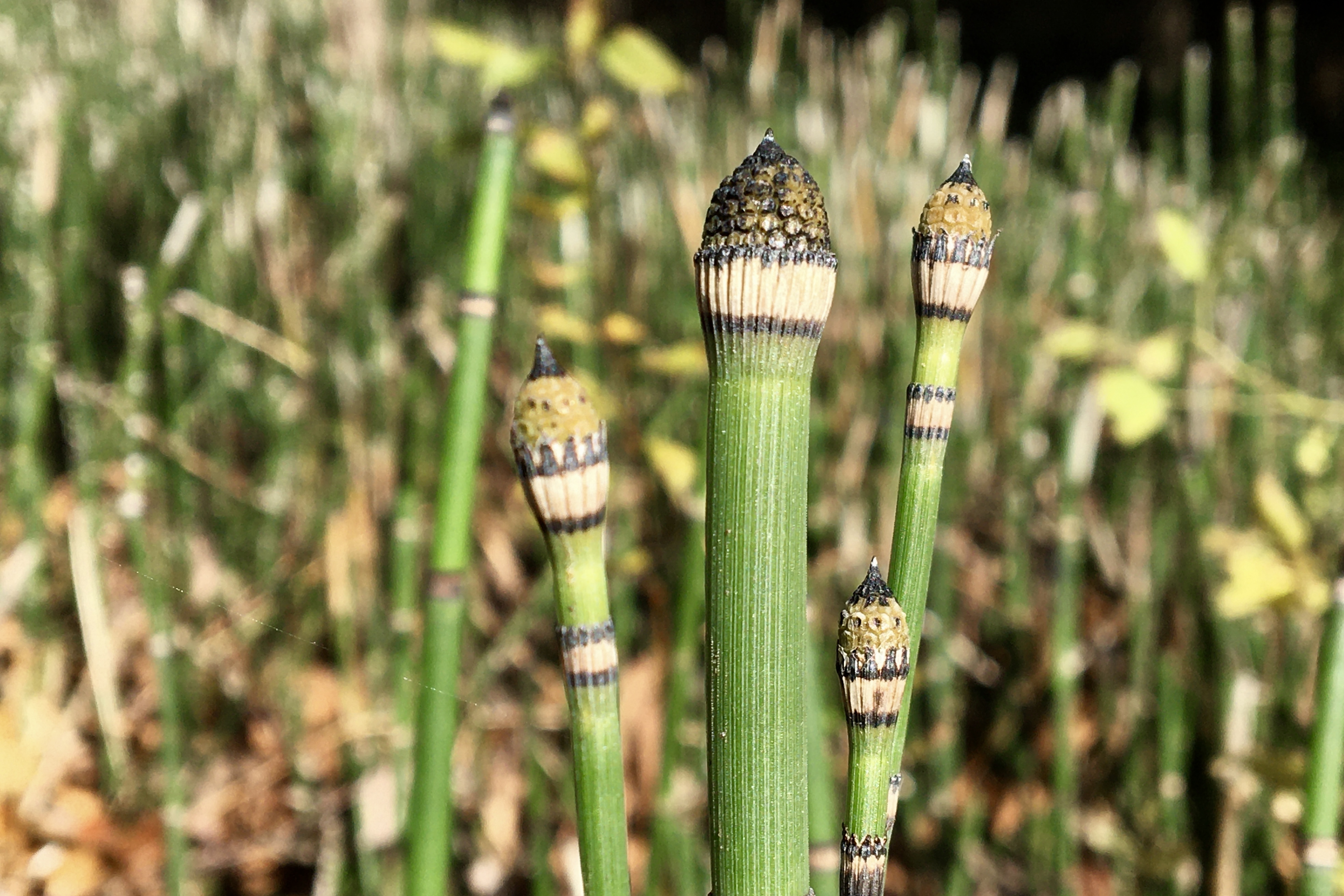
Rough Horsetail (Equisetum hyemale) Seashore to Forest Floor
Horsetail (Equisetum hyemale), often known as rough horsetail or scouring rush, is an evergreen plant with no flowers. Instead, it has vertical green stems with horizontal bands, like bamboo, but they're thinner and higher, like ornamental grass. Horsetail reproduces through spores rather than seeds and underground rhizomes, similar to ferns.

Equisetum hyemale Horsetail Rush for Sale Rare Roots
1 (800) 203-8590 or Contact Us Equisetum hyemale can be found along the edges of rivers and in low-lying wet areas throughout North America and parts of South America. It can grow in up to 4 inches of water. Horsetail's upright form and unique jointed stems are perfect for sites with modern architecture or sleek designs.
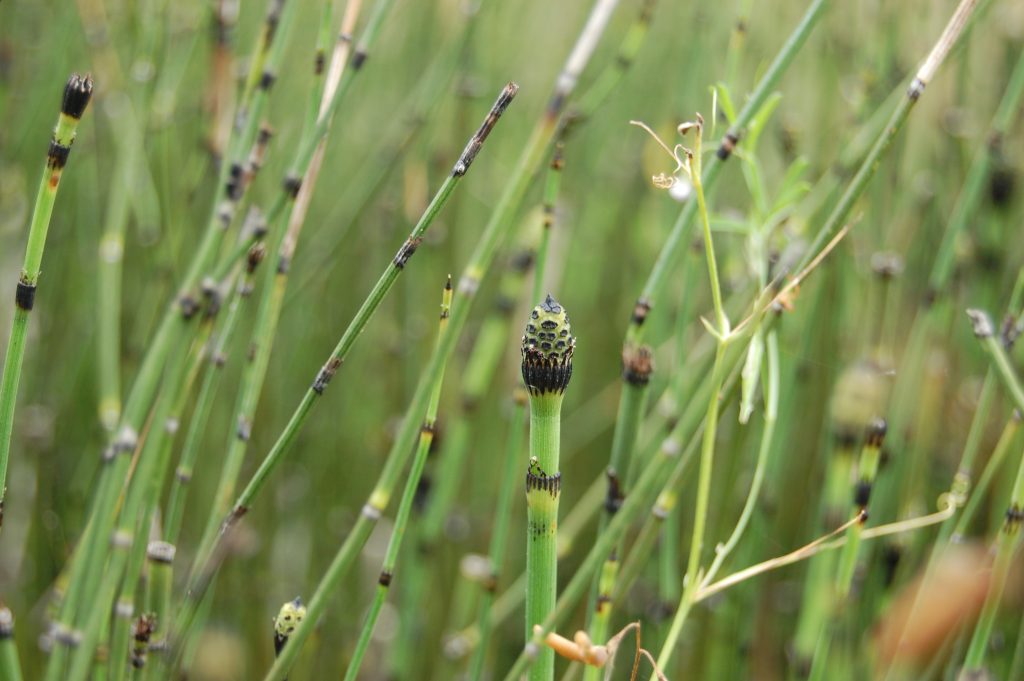
Horsetail Equisetum hyemale Florida Paddle Notes
Equisetum hyemale is a member of the only genus in the horsetail family (Equisetaceae) and is native to Eurasia and North America.Called rough horsetail or scouring rush, the plant has traditionally been used for incontinence, irritation of the genito-urinary tract, urge to urinate when the bladder is empty, edema, and kidney stones.